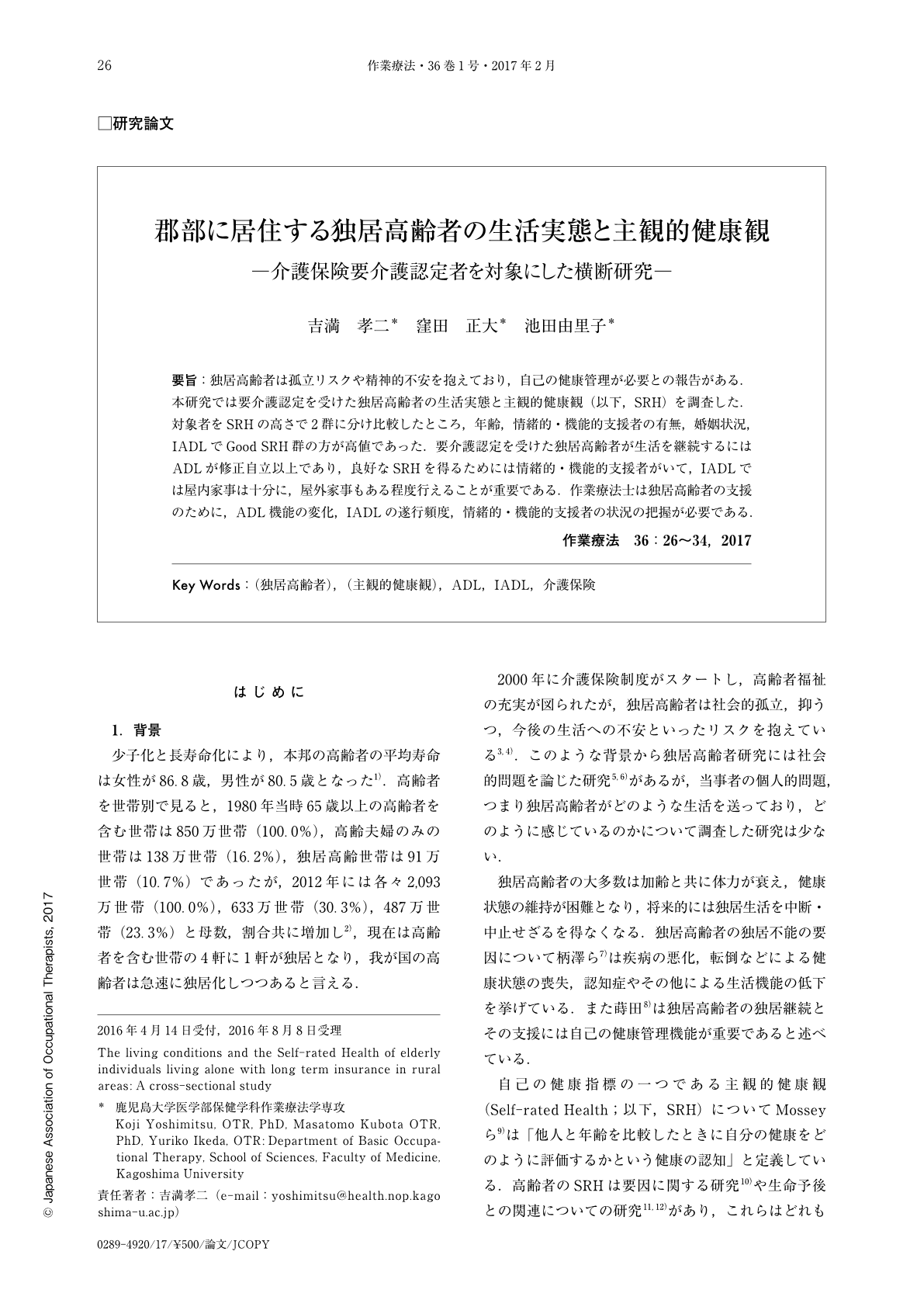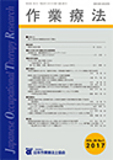Japanese
English
- 販売していません
- Abstract 文献概要
- 1ページ目 Look Inside
- 参考文献 Reference
要旨:独居高齢者は孤立リスクや精神的不安を抱えており,自己の健康管理が必要との報告がある.本研究では要介護認定を受けた独居高齢者の生活実態と主観的健康観(以下,SRH)を調査した.対象者をSRHの高さで2群に分け比較したところ,年齢,情緒的・機能的支援者の有無,婚姻状況,IADLでGood SRH群の方が高値であった.要介護認定を受けた独居高齢者が生活を継続するにはADLが修正自立以上であり,良好なSRHを得るためには情緒的・機能的支援者がいて,IADLでは屋内家事は十分に,屋外家事もある程度行えることが重要である.作業療法士は独居高齢者の支援のために,ADL機能の変化,IADLの遂行頻度,情緒的・機能的支援者の状況の把握が必要である.
Elderly individuals living alone have increased risk and mental anxiety, which necessitate self-health care. This study examined the living conditions and the Self-rated Health (SRH) of elderly living alone and certified as needing long-term care. The participants were divided into Good SRH and Poor SRH groups, and their attributes were compared. The SRH and the Good SRH group scored significantly higher on the following: Age, percentage of respondents having someone who provides functional and emotional support, percentage of marital status, and medians of IADL. The results suggest that the following factors, regardless of their frequency, are important for elderly individuals living alone and certified as needing long-term care to continue living alone: an ADL independence level of “Modified independence” or higher, good SRH, the presence of an individual who provides functional and emotional support, and the ability to sufficiently carry out affairs both in and outside the household to some degree. To support elderly individuals living alone, occupational therapists need to grasp the change of clients' ADL function, accomplish adequate frequency of the IADL, and support the client both functionally and emotionally.

Copyright © 2017, Japanese Association of Occupational Therapists. All rights reserved.


